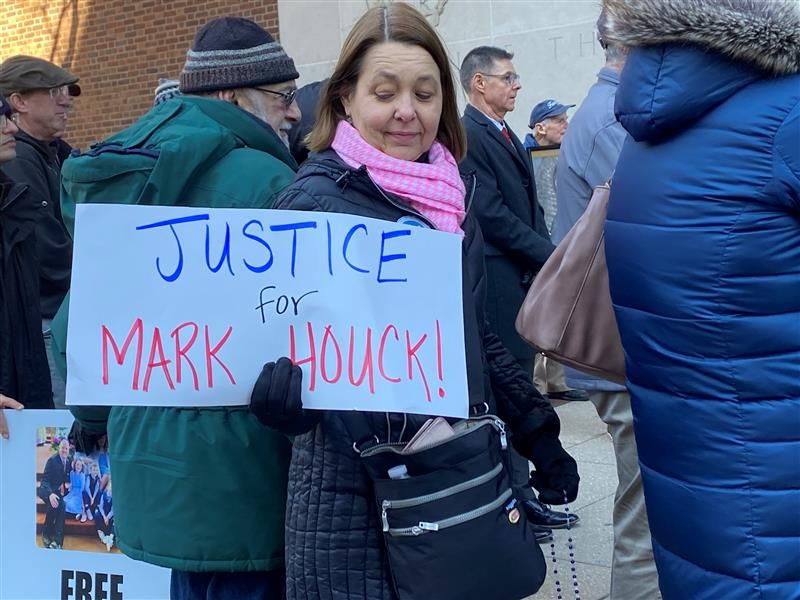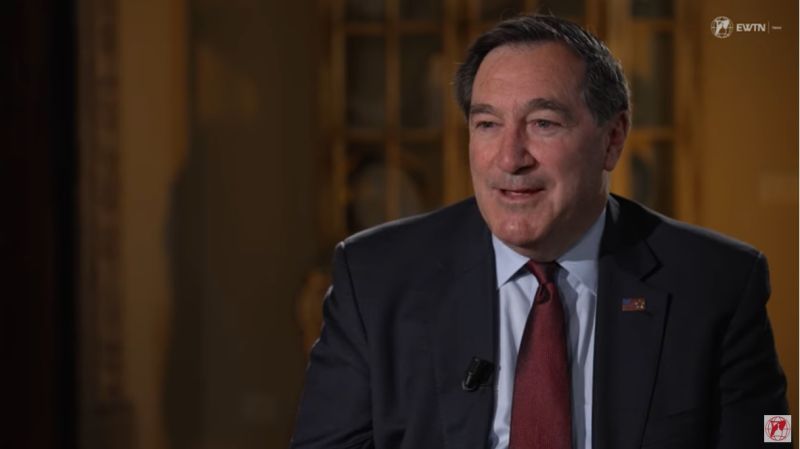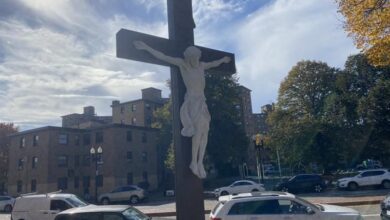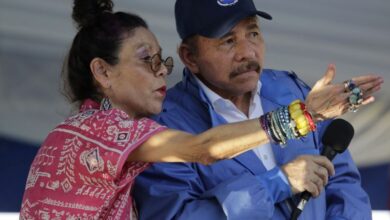Who is Rolando Álvarez, the bishop persecuted by the Nicaraguan dictatorship?
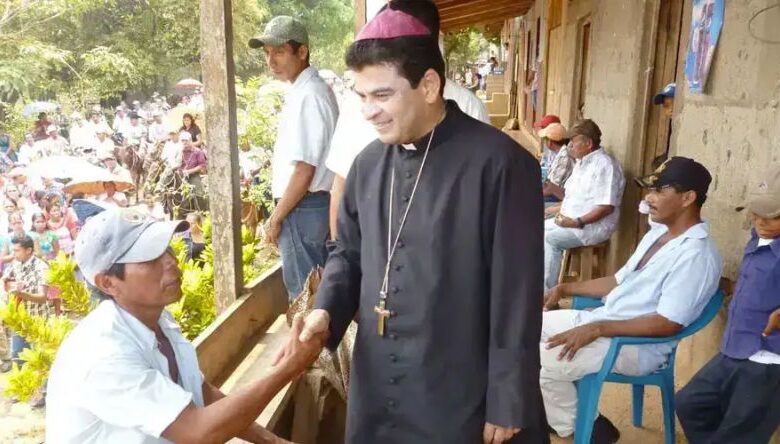
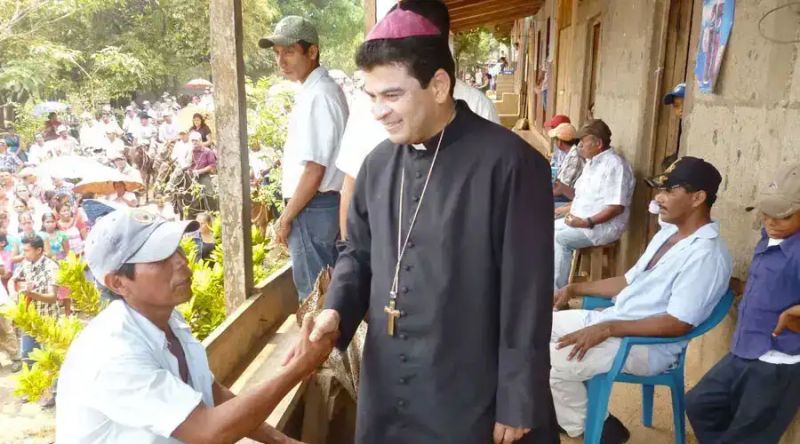 Bishop Rolando Álvarez. / Credit: Media Diocese – TV Merced
Bishop Rolando Álvarez. / Credit: Media Diocese – TV Merced ACI Prensa Staff, Oct 3, 2024 / 06:00 am (CNA).
Bishop Rolando Álvarez Lagos is once again in the news after Pope Francis appointed him to participate in the second session of the Synod on Synodality, which got underway this week at the Vatican.
The Nicaraguan bishop, living in exile since January, is one of the most prominent victims of the religious persecution that the dictatorship of President Daniel Ortega has been carrying out against the Catholic Church since 2018.
Here are some important facts about the life of the persecuted bishop of Matagalpa.
1. He was born in a humble home.
Álvarez was born on Nov. 27, 1966, in a simple home in Managua. According to the Nicaraguan media outlet Despacho505, his father, Miguel, was a worker involved in the charismatic renewal movement while his mother, Angela, attended the Neocatechumenal Way and sold a traditional drink based on corn and water.
2. From a young age he opposed Sandinismo.
On Sept. 13, 1983, the first government of the Sandinista National Liberation Front passed the law on the Patriotic Military Service to recruit thousands of young men and use them to confront the counterrevolutionaries otherwise known as the Contras. Álvarez, almost 17 at the time, belonged to a Catholic youth group and expressed his opposition to this order of the regime.
In a 2018 interview with La Prensa cited by the media outlet Article66, Alvarez recalled that his father offered to take him out of the country two days before the law came into effect. However, the young man opted to stay in Nicaragua.
Álvarez refused to do military service and was arrested several times. His house was raided and the persecution his family suffered forced him to take refuge in Guatemala, where he would later reunite with his relatives.
3. He studied in Rome and was ordained a priest at age 28.
In Guatemala, Álvarez completed high school and began his studies in philosophy at the National Major Seminary of Our Lady of the Assumption in Guatemala City. He obtained a bachelor’s degree in theology from the Pontifical Lateran University in Rome and a degree in philosophy from the Pontifical Gregorian University.
Meanwhile, the first Sandinista government of Daniel Ortega ended in February 1990.
On Dec. 7, 1994, in the metropolitan cathedral of the Immaculate Conception of Mary of the Archdiocese of Managua, Álvarez was ordained a priest at the age of 28.
He also worked as a professor and prefect at the Managua seminary from 1994–2006 and directed Catholic Radio of Nicaragua beginning in 2001.
In March 2011, Pope Benedict XVI named him bishop of Matagalpa and in July 2021, Pope Francis entrusted him with the apostolic administration of the Diocese of Estelí.
4. Despite harassment by the Sandinista regime, he continued his ministry as bishop.
In 2007, Ortega returned to power and, although at first it seemed that relations with the Church had improved, two years later tensions flared again, especially due to the bishops’ criticism of the Sandinista leader’s continuous engineering of his reelection to maintain control of the country.
The situation worsened from April 2018 on with demonstrations against pension and health reform. During the repression, which lasted several months, government agents besieged a church where a group of young people had taken refuge.
To resolve the crisis, the Catholic Church tried to mediate talks between the government and the opposition and Álvarez was one of the representatives chosen by the bishops. However, the talks failed and the crisis lasted for several months.
In June of that year, Álvarez denounced the attack on the Cartuja Pastoral Center in Matagalpa. In addition, in September a group of the regime’s supporters insulted him by calling him a “terrorist” and “murderer” when his car was stopped by a group of police on a highway.
In July 2019 the bishop said that during a pastoral visit to the community in La Joya he was warned by locals that he was under surveillance by armed men.
Despite the harassment, the prelate continued his pastoral work and in February 2020 published an ethical decalogue for politicians in view of the Nov. 7 elections of the following year.
In June 2021, he called for tolerance, since “Nicaragua is experiencing serious and complex conflicts.” By then, the Nicaraguan police had confined three presidential candidates to their homes and the main opposition candidate, Cristina Chamorro, was under house arrest.
5. He was abducted and imprisoned by the Ortega regime.
In mid-May 2022, Álvarez began a hunger strike because police harassment was also affecting his family. He said he would maintain his strike until the privacy of his family circle was respected.
On Aug. 4, Álvarez came out of his residence holding the Blessed Sacrament in a monstrance in response to the police not allowing his priests and collaborators to enter to celebrate Mass in the chancery chapel.
After almost an hour of calling for dialogue and respect for the Church, the bishop went back inside and celebrated the Eucharist with his collaborators. Riot police stood outside the door and kept them confined in the residence until Aug. 19.
On the morning of Aug. 19, the police broke into the chancery and took Álvarez away, along with the priests, seminarians, and the layman who accompanied him. The bishop was transferred to Managua and placed under house arrest.
Despite concerns voiced by the Nicaraguan bishops and Pope Francis, during the following months the prelate continued to be under pressure from the regime, which on Feb. 10, 2023, sentenced him to 26 years and four months in prison, accusing him of “treason” and stripping him of Nicaraguan citizenship.
The sentence was imposed one day after 222 political prisoners, including several priests, were deported to the United States. The bishop had refused to be part of the group and board the plane.
The sentence against the prelate was condemned by bishops and international organizations. For his part, Pope Francis expressed on Feb. 12 his concern for Álvarez, “whom I love so much.”
While the bishop of Matagalpa was imprisoned, the Vatican embassy was closed in Nicaragua on March 17 at the request of the Ortega government after the pope in an interview compared the Sandinista regime to “the communist dictatorship of 1917 or Hitler’s dictatorship of 1935.”
6. He was exiled to Rome and will now participate in the Synod on Synodality.
During the following months, the Ortega dictatorship continued to put pressure on the Catholic Church, closing institutions and imprisoning more priests, even prohibiting requests for prayers for Álvarez as researcher Martha Patricia Molina told ACI Prensa, CNA’s Spanish-language news partner.
Finally, on Jan. 14, 2024, local media reported that Álvarez had been deported to the Vatican, along with 15 priests and two seminarians as well as the bishop of Siuna, Isidoro Mora.
Mora had been detained since Dec. 20, 2023. The day before, during a Mass, he had asked for prayers for the imprisoned bishop of Matagalpa.
According to the Sandinista regime, the release came after “very respectful and discreet coordination carried out” with the Holy See.
During his exile, Álvarez received the 2024 Libertas Awards of the Principality of Asturias for his commitment to the defense and freedom of the people of Nicaragua.
On Sept. 16, the Vatican announced that Álvarez will participate in the second session of the Synod on Synodality, which began on Oct. 2. The name of the Nicaraguan bishop appears on the list of people appointed directly by Pope Francis.
This story was first published by ACI Prensa, CNA’s Spanish-language news partner. It has been translated and adapted by CNA.



